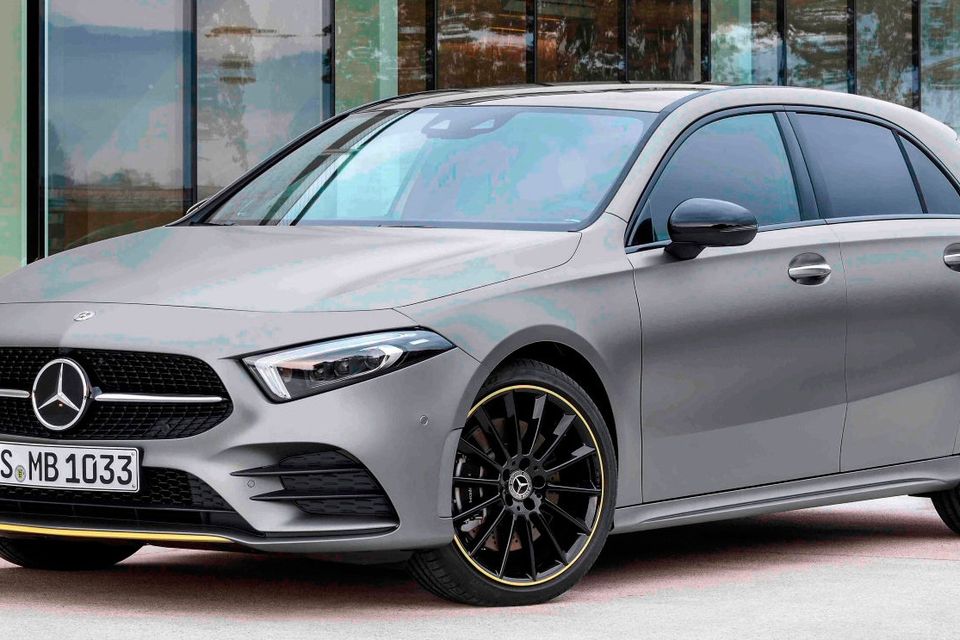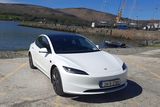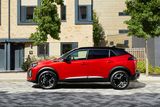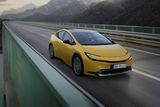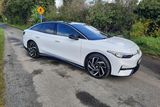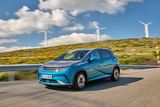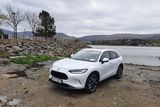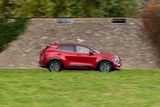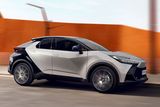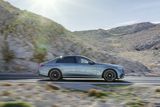Is Merc a sound choice?
The new A-Class has boasted of many technical advances, but does it live up to expectations, asks Campbell Spray
HIT AND MISS: The A-Class has a high level of safety equipment, but is a long way from giving a comfortable ride
The dog probably thought we were mad. Totally barking, in more ways than one. Two reasonably normal people out for a drive in a very tasty little Mercedes-Benz shouting at the dashboard. Of course, as is the way with such things, it didn't start as shouting - more a conversation that had got out of control.
There we were tootling along when I told my partner that I could change the radio station by just instructing the dashboard. 'Hey Mercedes', I said, I want to change the radio station. 'Fine', came back the reply, say the new station. RTE Radio One, I said. Nothing. Tried again. Nothing. My partner tried. Nothing.
Now, there was no problem with Newstalk. Probably there was some link with Ivan Yates's braying protestant tones and my own. But immediately the Mercedes made the connection when asked. We tried again with Radio One, and got the BBC. But with whatever voice, soft or loud, bass or soprano, RTE Radio One stayed silent.
Of course the 'Hey Mercedes!' feature is just one of the many technical advances that the manufacturer crows about with the new A-Class - that the car can be opened and operated by a mobile phone, shared by up to 25 others with their phones, tells other drivers when you have left a good parking spot, memorises phone numbers and routes and keeps you bathed in air-conditioned luxury that even extends to the bottom of the seat with simple voice controls. All this is part of the so-called 'Mercedes-Benz User Experience'.
Much of the features of the A-Class have derived from the S-Class which have come down from the top of the Merc range in a torrent, rather than a trickle down. However, the avant-garde display, communications and styling is very much hit and miss, a bit like the car itself, which has made a massive journey since the first-generation model 20 years ago. The very upright little box was launched in the poor light of stability concerns over the infamous Elk test. However, its height appealed to downsizing older generations and also those who wanted a very convenient, small family car with a premium badge.
While trying to give more space, the fourth-generation model has got leaner, longer and a lot, lot lower even than its predecessor which had emphasised Mercedes's desire to get into the younger, more style-conscious market. And, with this aim, it has succeeded well, with buyers of the new A-Class on average 13 years younger than those who bought the first-generation models.
It is a very smooth car, well-built with only a very few touches that aren't quite there yet. It is comfortable up front but rear and boot space is just adequate in the five-door hatchback. The car was too low for me - and occasionally the road as speed bumps became more of an obstacle than they should. In fact, the test car, with its large alloys, was a long way from giving a comfortable ride overall.
What cannot be denied is the very high level of safety equipment in the car. However, a lot of it is thankfully rapidly becoming the norm to be offered - although often not ordered - across non-premium models like the new Ford Focus. Mercedes is firmly committed to its diesels but smaller cars like the A-Class will also have very good petrol models. These will have a starting price of around €30,000 which is pretty competitive. I was driving an 180D AMG Line Automatic, which has a basic price of €35,505; however, with a parking and navigation package, plus metallic paint and speed limit assist, it came to just under €40k.
I hate to say it but there are many other cars out there - especially German - which will get almost to that point without trying. If you are young, agile, ambitious and class conscious and don't have to carry adults in the rear, the A-Class could be for you. It will set you up pointedly as a three-star person. It isn't for me but will do well. It frustrated me, not just with its voice commands. Apparently the engineers at the launch declared, "it accepts natural language - ask it anything". They were barking, too.
*********
The JD Power dependability survey in Britain is one of the best resources available for showing how reliable (or unreliable) each car manufacturer is. It is based on responses from 12,000 car owners, and as such yields more accurate results than mere guesswork and stereotype.
There are some real surprises. The 'premium' brands tend to perform worse than the 'volume' brands, for example. This is due, in part, to the respective complexities of the vehicles produced, and it's worth noting that the responses are based on cars purchased between 2015 and 2017 (so this year's latest models aren't included).
This survey is far from perfect, but it gives an accurate indication of which car manufacturers are building dependable vehicles, and which are falling behind. Here's how the top 24 shaped up. The bad news for premium brands is that they take up seven of the worst 10 places, with BMW very much in bottom position, as it was last year. Not unexpectedly, Fiat is next, followed by Audi, Land Rover, Citroen, Mini, Renault, Volvo, Jaguar and, surprisingly, Mazda.
At the other end, Suzuki, Kia, Skoda and Nissan are respectively second, third, fourth and fifth for reliability. But it is the Korean marque, Hyundai, which is judged the most dependable.
Join the Irish Independent WhatsApp channel
Stay up to date with all the latest news
